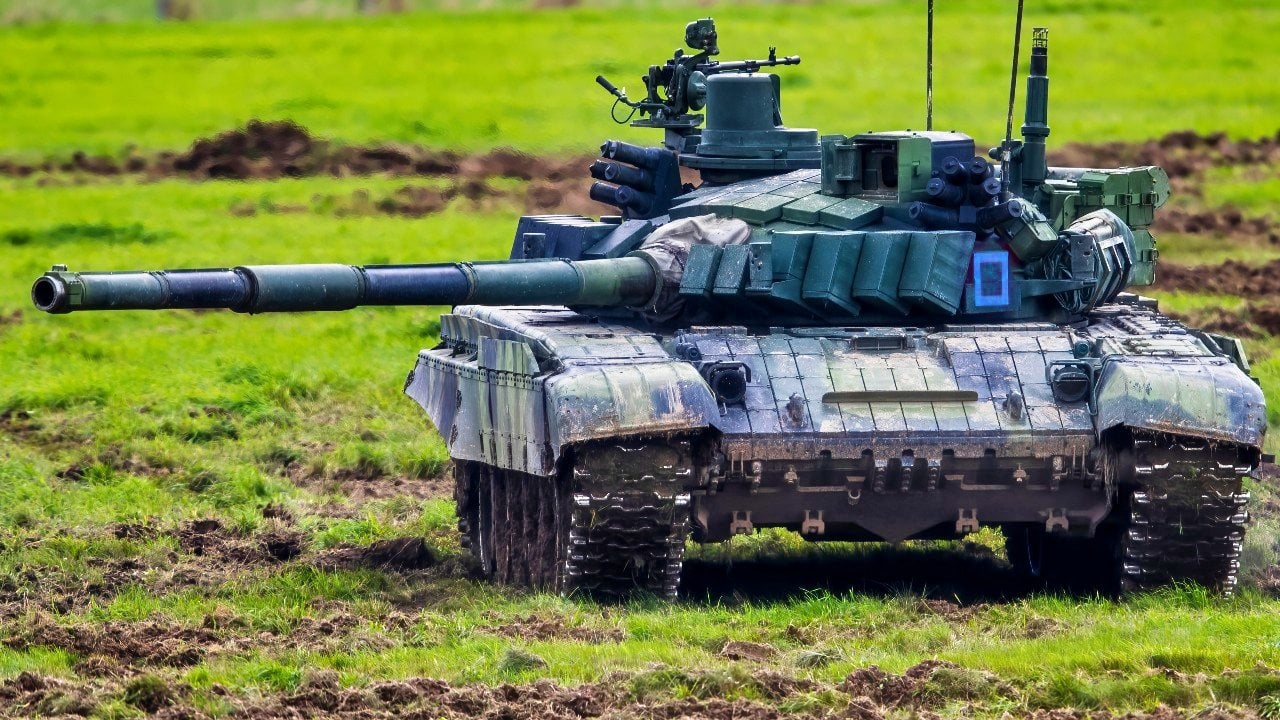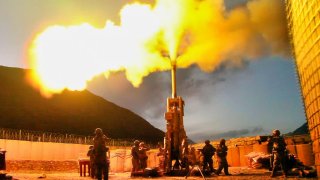Ukrainian Military Escalates Long-Range Strikes, Disables Key Russian Vessel
Ukrainian forces have disabled the Russian RO-RO ferry Slavyanin in Port Kavkaz, critical for transporting fuel between Russia and Crimea. This follows the earlier damage to two other RO-RO ferries, severely impacting Russia's logistics.
Summary and Key Points: Ukrainian forces have disabled the Russian RO-RO ferry Slavyanin in Port Kavkaz, critical for transporting fuel between Russia and Crimea. This follows the earlier damage to two other RO-RO ferries, severely impacting Russia's logistics.

-The Slavyanin, the largest vessel for ferrying Liquified Petroleum Gas (LPG), was essential for supplying Russian forces in southern Ukraine and Crimea.
-The Kerch Strait, a crucial supply route, has been repeatedly targeted by Ukraine. With over 560,000 Russian military casualties and significant equipment losses, Russia's logistical challenges are mounting amid Ukraine's increasingly aggressive long-range strikes.
The Ukraine War Is Getting More Intense
Ukrainian forces have incapacitated one of the most important ships in the Russian military effort in Ukraine.
Tasked with ferrying much-needed fuel, the loss of the ship will only make the Russian efforts in Ukraine harder.
RORO Is Out
On Tuesday, the Ukrainian military landed a strike on the rail Roll On-Roll Off (RO-RO) ferry Slavyanin in Port Kavkaz in Russia. RORO ships use ramps to quickly ferry cars and trucks when in port and are popular in tourist destinations.
“The strike will almost certainly cause Russia further logistical problems in supplying its occupying forces in southern Ukraine and the regional export of Liquified Petroleum Gas (LPG),” the British Military Intelligence assessed in a recent operational update on the conflict.
The ship has the largest capacity of all the ships tasked with ferrying fuel between Russia and the Crimean Peninsula in the Kerch Strait. And it was the only vessel left to ferry LPG fuel. The Ukrainian military had damaged the two other RORO ferries back in May 29.
“Rendering RO-RO ferries non-operational, even temporarily, imposes increased costs as well as reducing Russia’s flexibility to transport fuel, munitions, and equipment across the Kerch Strait,” the British Military Intelligence stated.
The Kerch Strait connects Russia and Ukraine via the Crimean Peninsula. Since the full-scale invasion began on February 24, 2022, the Kerch Strait has been at the center of attention because of its high value to the logistical lines of the Russian forces. Indeed, the Russian units located in southern Ukraine and the Crimea Peninsula depend on their resupply on the Kerch Strait. There is a vehicle/rail bridge that connects Russia and Crimea, but the Ukrainians have repeatedly attacked it with unmanned vehicles, naval drones, and cruise missiles.
“Since these attacks Russia has highly likely been forced to change its security procedures and risk the movement of fuel trainsets across the Kerch bridge, something it had tried to avoid doing since the first attack on the bridge in October 2022,” the British Military Intelligence concluded in its operational assessment.

The Russian military has struggled to meet the intense demands of the frontlines and the high attrition rate. In almost 900 days of fighting, the Russian military has lost over 560,000 men killed, wounded, or captured, as well as tens of thousands of heavy weapon systems damaged or destroyed. To make matters worse, the Kremlin has failed in many cases to provide adequate resources to its troops fighting on the frontlines. Indeed, there have been times when ammunition, weapons, first aid kits, clothing, and even food have been in short supply in the Russian units fighting in the trenches.
The Ukrainian military is increasingly more aggressive with its long-range strikes and is now using weapon systems and munitions, such as the MGM-140 Army Tactical Missile System (ATACMS) ballistic missile, Storm Shadow cruise missile, and SCALP-EG cruise missile, for strikes against high-value targets, including logistical hubs, within Russia.
About the Author
Stavros Atlamazoglou is a seasoned defense journalist specializing in special operations and a Hellenic Army veteran (national service with the 575th Marine Battalion and Army HQ). He holds a BA from Johns Hopkins University and an MA from Johns Hopkins’ School of Advanced International Studies (SAIS). His work has been featured in Business Insider, Sandboxx, and SOFREP.
All images are Creative Commons and or Shutterstock.


